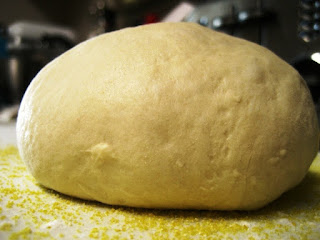Sweetness, Always by Pablo Neruda trans. by Alastair Reid from
Extravagaria
(Farrar, Straus & Giroux)
Why such harsh machinery?
Why, to write down the stuff
and people of every day,
must poems be dressed up in gold,
or in old and fearful stone?
I want verses of felt or feather
which scarcely weigh, mild verses
with the intimacy of beds
where people have loved and dreamed.
I want poems stained
by hands and everydayness.
Verses of pastry which melt
into milk and sugar in the mouth,
air and water to drink,
the bites and kisses of love.
I long for eatable sonnets,
poems of honey and flour.
Vanity keeps prodding us
to lift ourselves skyward
or to make deep and useless
tunnels underground.
So we forget the joyous
love-needs of our bodies.
We forget about pastries.
We are not feeding the world.
In Madras a long time since,
I saw a sugary pyramid,
a tower of confectionery -
one level after another,
and in the construction, rubies,
and other blushing delights,
medieval and yellow.
Someone dirtied his hands
to cook up so much sweetness.
Brother poets from here
and there, from earth and sky,
from Medellin, from Veracruz,
Abyssinia, Antofagasta,
do you know the recipe for honeycombs?
Let’s forget about all that stone.
Let your poetry fill up
the equinoctial pastry shop
our mouths long to devour -
all the children’s mouths
and the poor adults’ also.
Don’t go on without seeing,
relishing, understanding
all these hearts of sugar.
Don’t be afraid of sweetness.
With or without us,
sweetness will go on living
and is infinitely alive,
forever being revived,
for it’s in a man’s mouth,
whether he’s eating or singing,
that sweetness has its place.
When I sat down to post this morning I imagined it would be an impossible task to find a poem that would suit for Valentine's Day and Lent. And then I came across this poem by Pablo Neruda.

It may seem like an indulgent poem for Lent with all this luscious imagery. . . melt-in-your-mouth verses and honeyed poems, the desire for sweetness always. But Neruda reminds us that we are all fragile, mortal. Hearts of sugar may break and inevitably will melt away but the sweetness, "with or without us/sweetness will go on living/and is infinitely alive/forever being revived."
So the questions I'm thinking about today is where am I finding this sweetness in my life right now? And how can I give some sweetness back in return?












































